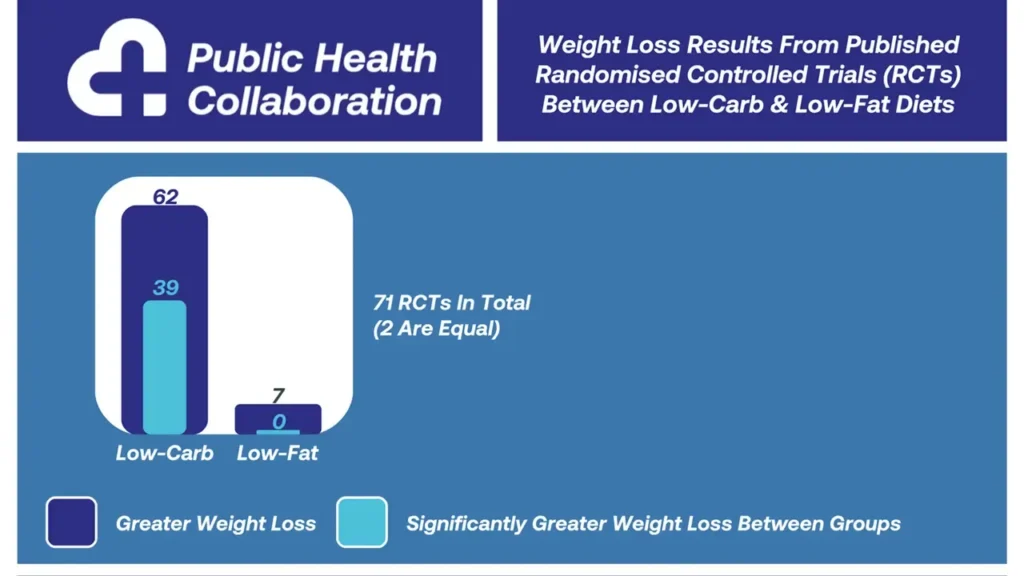
For decades, conventional wisdom has told us that weight loss is as simple as calories in, calories out—burn more than you consume, and the weight will come off. But if this approach really worked, why are obesity rates continuing to climb? The truth is, weight loss is not just about calories—it’s about hormones, specifically insulin.
Let’s explore why insulin plays a bigger role in fat storage and metabolism than calorie counting alone and why a low-carb diet has consistently been shown to outperform low-fat diets.
Why the ‘Calories In, Calories Out’ Model Fails
Traditional diet advice tells us that eating less and moving more is the key to weight loss. While calorie balance does matter, it’s only one piece of the puzzle. What really determines whether you store fat or burn it is your insulin levels.
- When insulin is high, your body is in fat-storing mode, no matter how few calories you consume.
- When insulin is low, your body must burn fat for energy, even if calorie intake is slightly higher.
This means that two people eating the same number of calories can experience completely different results, depending on their insulin levels and the type of food they’re eating.
What Insulin Does in the Body
Insulin is a hormone that tells your cells what to do with energy. Here’s how it works:
- When you eat carbohydrates, insulin rises to help shuttle glucose (sugar) into cells for energy.
- If you eat more carbs than your body needs, excess glucose is stored as fat.
- When insulin levels remain chronically high, fat burning is shut down, making weight loss nearly impossible.
- On the other hand, when insulin is low, the body switches to fat-burning mode.
This is why low-carb diets have been shown to be more effective for fat loss and metabolic health compared to low-fat diets.
Scientific Proof: Low-Carb vs. Low-Fat Diets
If you’re still skeptical, let’s look at the research. The UK’s Public Health Collaboration analyzed 67 randomized controlled trials, comparing low-carb diets to low-fat, high-carb diets. The results?
- 58 out of 67 studies found low-carb diets to be significantly more effective for weight loss and metabolic health.
- Low-carb eaters experienced greater fat loss, better blood sugar control, and improved metabolic markers.
- Unlike calorie-restricted low-fat diets, low-carb diets work by controlling insulin, allowing the body to naturally burn fat.
This is why counting calories alone isn’t enough—you need to manage insulin for real, long-term success.
Final Thoughts
While calories do matter, they’re not the whole story. Insulin is the real driver of fat storage and fat burning. If you’ve been struggling with weight loss despite eating less and exercising more, it’s time to shift your focus to insulin control. By choosing low-carb, nutrient-dense foods and adopting smart lifestyle habits, you can naturally lower insulin, burn fat efficiently, and achieve long-term metabolic health.
Have you noticed changes in your own body when you focus on insulin instead of calories?
10-Day Free Trial!
Start your journey toward better health today by taking control of your metabolic future, with the support you need for success.
